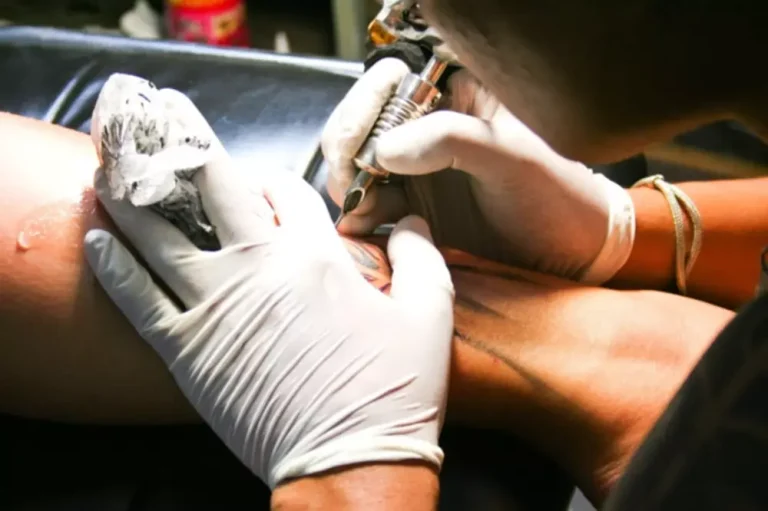
Many cocktails and wines also contain high amounts of sugar, which can stimulate your body as you start to metabolize the drinks. But alcohol also suppresses the production of glutamine, a type of amino acid and a natural stimulant. As your body metabolizes the alcohol, glutamine production kicks into overdrive and wakes you up. It’s one part of the rebound effect the body goes through as it clears alcohol from your system, which is linked with frequent sleep disturbances in the second half of the night. Just because alcohol has a sedative effect doesn’t mean you’ll get better sleep, though. Research has shown that drinking messes with sleep cycles and leads to frequent awakenings in the night and early morning.
Alcohol Alters Sleep Stages
- People suffering from depression may already have disrupted circadian rhythms, and the presence of even moderate amounts of alcohol may push those rhythms further out of sync.
- Take the Sleep Quiz to help inform your sleep improvement journey.
- The Sleep Foundation editorial team is dedicated to providing content that meets the highest standards for accuracy and objectivity.
- However, the problem with alcohol and sleep often appears as the night progresses.
The rebound effect may include more time in REM—a lighter sleep stage from which it is easy to be awakened. It’s true, sleep https://ecosoberhouse.com/ may happen more quickly after consuming a drink or two. Alcohol often does reduce sleep onset latency—the time it takes to fall asleep.
Strengthening your disease defense

Drinking is also linked with the lowest oxygen saturation levels among people with OSA, as well as anyone prone to snoring, according to a 2020 systematic review. That same review found that people experienced an average of one to two more “apneic events” (or involuntary breathing pauses) every hour after drinking. First off, while wine and other alcohols have notorious sedative effects, it’s important to note that these drinks also have calories, which means they give us energy, too. Sober living house So while alcohol is being processed, before you begin to feel a bit drowsy, the calories are being converted to energy.
Lifestyle
Alcohol is a muscle relaxant, so consuming alcohol at bedtime can make a person more prone to experience a blocked airway. People who typically snore or who have obstructive sleep apnea tend to display more severe snoring and lower blood oxygen levels after drinking alcohol, especially when they drink close to bedtime. People who regularly drink alcohol are 25% more likely to have obstructive sleep apnea, although the connection may be partly due to other shared risk factors such as obesity. Alcohol initially acts as a sedative, increasing the proportion of deep sleep at the beginning of the night. However, as the alcohol’s effects start to wear off, the body spends more time in light sleep, which is not as sound and may lead to more nighttime awakenings. As a result of these frequent awakenings, people tend to clock fewer hours sleeping after drinking alcohol.

Even moderate amounts of alcohol in your system at bedtime alters sleep architecture—the natural flow of sleep through different stages. It also leads to lighter, more restless sleep as the night wears on, diminished sleep quality, and next-day fatigue. Although consuming alcohol before bedtime helps you fall asleep faster, the popular beverage negatively affects overall sleep quality. When you consume alcohol before bed, your body metabolizes the alcohol throughout the night. As blood alcohol levels rise and fall, alcohol exerts different effects on your sleep.

This is why you’ll often see a warning label on these medications advising you to avoid alcohol. Combine alcohol with a fatty kebab or a late-night curry and your body has its work cut out keeping you cool and keeping you asleep. Because alcohol is highly calorific, drinking too much means that your body is suddenly faced with having to burn off these additional calories. People who go to bed with alcohol in their system may be more likely to wake early in the morning and not be able to fall back to sleep, another consequence of the rebound effect.
- Getting all this and more done each night is an elaborate production involving your brain’s internal messaging systems, composed of hormones, chemical messengers and electrical impulses.
- If you think your drinking may be impeding your sleep or overall quality of life, speaking to your doctor or therapist is a great first step.
- Alcohol use can impact the quality of your sleep, and research confirms there’s a link between alcohol use and insomnia.
- Even in moderate amounts, alcohol consumed in the hours before bedtime can cost you sleep and leave you feeling tired the next day.
- Below, we’ll take a closer look at how alcohol affects the different stages of sleep, as well as how the quantity and timing of alcohol can influence sleep quality.
It’s easy to understand why sipping a glass of wine might sound like the perfect way to wind down before bed at the end of a busy day. Alcohol slows down the brain and has a sedating effect, explains Sara E. Benjamin, MD, medical director of clinical operations at Johns Hopkins Center for Sleep does liquor help you sleep and Wellness in Columbia, Maryland. But while alcohol may help you feel relaxed and sleepy, it can ultimately lead to disrupted sleep and make you more likely to be tired the next day. And regularly using alcohol to fall asleep can lead to serious health consequences. Anyone who has experienced a restless night after a few drinks can attest to alcohol’s disruptive effect on sleep. Though alcohol can increase drowsiness and reduce the time it takes to fall asleep, it can ultimately reduce sleep quality and change sleep patterns.
Health Benefits of Cinnamon, According To Experts
Stage 3, also called slow-wave sleep, is the deepest stage, typically making up about a quarter of your sleep during the night. This is the phase when the body performs essential maintenance, like repairing tissue, strengthening the immune system, and developing bones and muscles. Alcohol has been shown to boost the amount of slow-wave sleep you get in the first half of the night, which could potentially increase the risk of sleepwalking, sleep apnea, and other sleep problems. The sleep disruptions that tend to occur in the second half of the night after you’ve been drinking could make it difficult to enter and maintain stage 3 sleep, so you’re unlikely to feel refreshed in the morning.
- Suppressing REM sleep can have detrimental consequences for memory consolidation and other cognitive processes.
- Sleep deprivation due to alcohol consumption can exacerbate performance impairment and daytime sleepiness.
- Not getting enough REM sleep can make concentrating difficult, cause forgetfulness and leave people feeling excessively sleepy during the day.
- Long-established research shows the body metabolizes alcohol differently at different times of day.
Drinking coffee in the morning could reduce your risk of death and heart disease, study finds
Substantial evidence suggests that alcohol worsens symptoms of snoring and obstructive sleep apnea. These sleep-related breathing difficulties occur when soft tissues collapse and block the upper airway. In more serious cases, individuals suffer momentary lapses in breathing, followed by micro-awakenings that interrupt the progression of the sleep stages. People who consistently drink too much alcohol may eventually build up a tolerance to its initial sedative effects.

